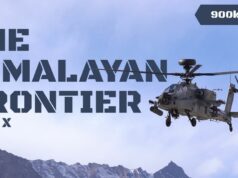Lebanese armed group Hezbollah said on Tuesday it had elected deputy head Naim Qassem to succeed slain secretary general Hassan Nasrallah, who was killed in an Israeli air attack on Beirut’s southern suburb over a month ago.
The group said in a written statement that its Shura Council had elected Qassem, 71, in accordance with its established mechanism for choosing a secretary general.
Who Is Naim Qassem?
Born in 1953 in Beirut to a family from Lebanon’s south, Qassem’s political activism began with the Lebanese Shi’ite Amal Movement.
He left the group in 1979 in the wake of Iran’s Islamic Revolution, which shaped the political thinking of many young Lebanese Shi’ite activists.
Qassem took part in meetings that led to the formation of Hezbollah, established with the backing of Iran’s Revolutionary Guards in response to the Israeli invasion of Lebanon in 1982.
He has been the general coordinator of Hezbollah’s parliamentary election campaigns since the group first contested them in 1992.
Qassem was appointed deputy chief in 1991 by the armed group’s then-secretary general Abbas al-Musawi, who was killed by an Israeli helicopter attack the following year.
He remained in his role when Nasrallah became leader, and has long been one of Hezbollah’s leading spokesmen.
In 2005, he wrote a history of Hezbollah seen as a rare “insider’s look” into the organisation. Qassem wears a white turban unlike Nasrallah and Safieddine, whose black turbans denoted their status as descendants of the Prophet Muhammad.
Israel v/s Hezbollah
Speaking in front of curtains from an undisclosed location on Oct. 8, Qassem said the conflict between Hezbollah and Israel was a war about who cries first, and Hezbollah would not cry first. The group’s capabilities were intact despite “painful blows” from Israel.
But he added the group supported the efforts of parliament speaker Nabih Berri – a Hezbollah ally – to secure a ceasefire, for the first time omitting any mention of a Gaza truce deal as a pre-condition for halting the group’s fire on Israel.
Nasrallah was killed on Sept. 27, and senior Hezbollah figure Hashem Safieddine – considered the most likely successor – was killed in Israeli strikes a week later.
(with inputs from Reuters)




